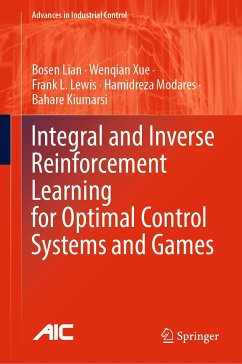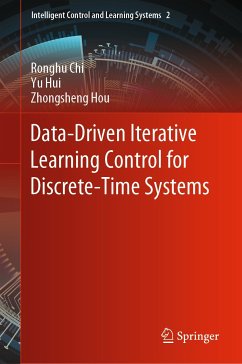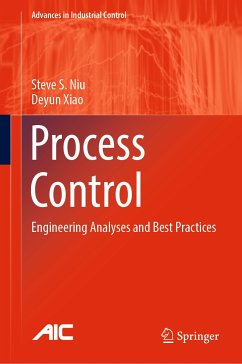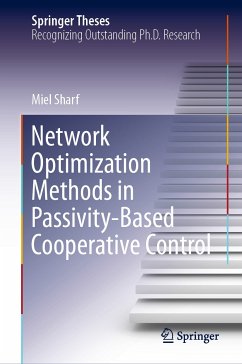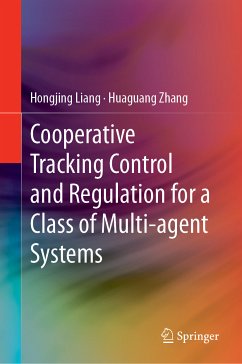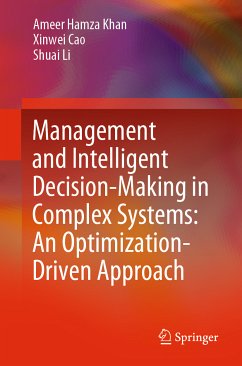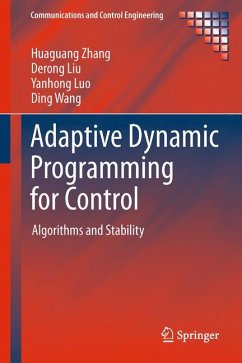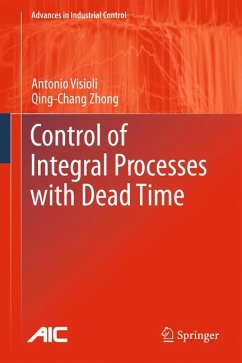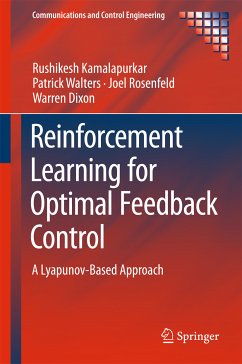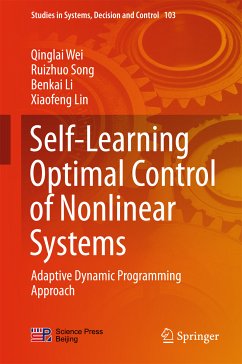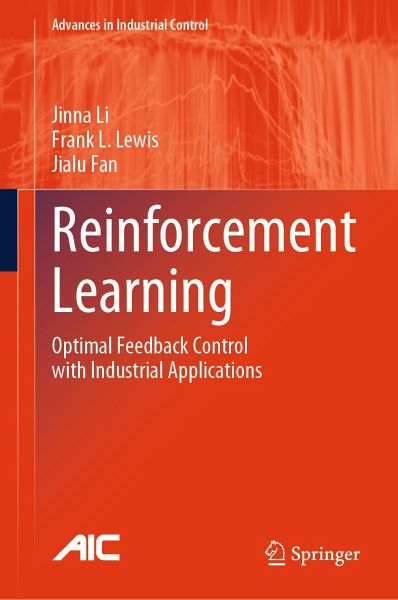
Reinforcement Learning (eBook, PDF)
Optimal Feedback Control with Industrial Applications
Versandkostenfrei!
Sofort per Download lieferbar
112,95 €
inkl. MwSt.
Weitere Ausgaben:

PAYBACK Punkte
56 °P sammeln!
This book offers a thorough introduction to the basics and scientific and technological innovations involved in the modern study of reinforcement-learning-based feedback control. The authors address a wide variety of systems including work on nonlinear, networked, multi-agent and multi-player systems.A concise description of classical reinforcement learning (RL), the basics of optimal control with dynamic programming and network control architectures, and a brief introduction to typical algorithms build the foundation for the remainder of the book. Extensive research on data-driven robust cont...
This book offers a thorough introduction to the basics and scientific and technological innovations involved in the modern study of reinforcement-learning-based feedback control. The authors address a wide variety of systems including work on nonlinear, networked, multi-agent and multi-player systems.
A concise description of classical reinforcement learning (RL), the basics of optimal control with dynamic programming and network control architectures, and a brief introduction to typical algorithms build the foundation for the remainder of the book. Extensive research on data-driven robust control for nonlinear systems with unknown dynamics and multi-player systems follows. Data-driven optimal control of networked single- and multi-player systems leads readers into the development of novel RL algorithms with increased learning efficiency. The book concludes with a treatment of how these RL algorithms can achieve optimal synchronization policies for multi-agentsystems with unknown model parameters and how game RL can solve problems of optimal operation in various process industries. Illustrative numerical examples and complex process control applications emphasize the realistic usefulness of the algorithms discussed.
The combination of practical algorithms, theoretical analysis and comprehensive examples presented in Reinforcement Learning will interest researchers and practitioners studying or using optimal and adaptive control, machine learning, artificial intelligence, and operations research, whether advancing the theory or applying it in mineral-process, chemical-process, power-supply or other industries.
A concise description of classical reinforcement learning (RL), the basics of optimal control with dynamic programming and network control architectures, and a brief introduction to typical algorithms build the foundation for the remainder of the book. Extensive research on data-driven robust control for nonlinear systems with unknown dynamics and multi-player systems follows. Data-driven optimal control of networked single- and multi-player systems leads readers into the development of novel RL algorithms with increased learning efficiency. The book concludes with a treatment of how these RL algorithms can achieve optimal synchronization policies for multi-agentsystems with unknown model parameters and how game RL can solve problems of optimal operation in various process industries. Illustrative numerical examples and complex process control applications emphasize the realistic usefulness of the algorithms discussed.
The combination of practical algorithms, theoretical analysis and comprehensive examples presented in Reinforcement Learning will interest researchers and practitioners studying or using optimal and adaptive control, machine learning, artificial intelligence, and operations research, whether advancing the theory or applying it in mineral-process, chemical-process, power-supply or other industries.
Dieser Download kann aus rechtlichen Gründen nur mit Rechnungsadresse in A, B, BG, CY, CZ, D, DK, EW, E, FIN, F, GR, HR, H, IRL, I, LT, L, LR, M, NL, PL, P, R, S, SLO, SK ausgeliefert werden.
Alle Preise in Euro und inkl. der gesetzl. MwSt. | Innerhalb Deutschlands liefern wir preisgebundene Bücher versandkostenfrei. Weitere Informationen: bitte hier klicken
Support
Bitte wähle dein Anliegen aus:
Rechnungen
Bestellstatus
Retourenschein
Storno



